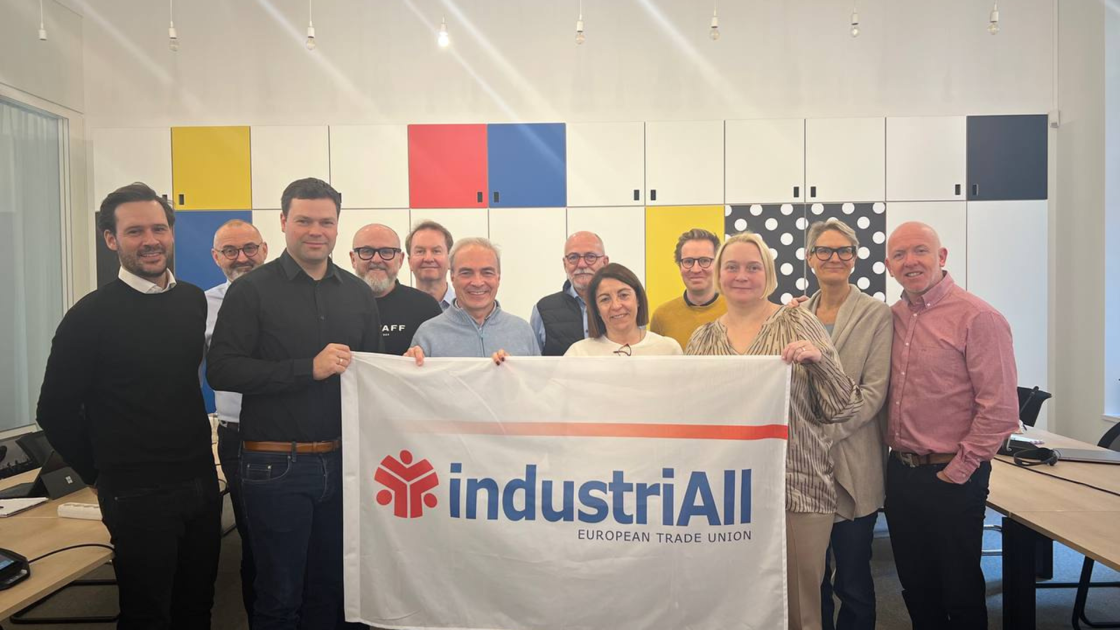European trade union representatives from the chemical and pharmaceutical sector met on 29 November to address pressing issues affecting the sector. Affiliates from Germany, Spain, Italy, Finland, France, Belgium and the UK attended the network meeting.
Energy costs - a key challenge for the industry
One of the central themes of the meeting was the continuing high cost of energy and the increasing need for investment, driven in particular by ambitious climate change targets. Emphasising that much-needed climate action must not come at the expense of good jobs, trade union representatives linked their discussion to the recently launched 'Good Industrial Jobs' campaign by industriAll Europe. Through this campaign, industrial workers are urging policymakers to create effective EU climate and energy policies that can reduce emissions but also protect European industry and industrial jobs.
Particular attention was given to the urgent need for solutions to mitigate escalating energy costs and prices. Long-term strategies, including the exploration of clean energy alternatives such as hydrogen, were also discussed. Representatives stressed the importance of a stable policy framework for the industry to ensure predictability in these dynamic times.
Shaping the future of the pharmaceutical industry
A significant part of the meeting was dedicated to a fundamental discussion on the future of the pharmaceutical industry in Europe. Questions were raised about ensuring robust public health systems with widespread access to affordable medicines and the measures proposed by the European Commissions through a reform of the EU pharmaceutical legislation. Representatives also emphasised the need to keep pharmaceutical research, development and production in Europe, a key demand of industriAll Europe’s position 'Affordable access to pharmaceuticals for all and good jobs in the European pharmaceutical industry'.
Chemicals management for industrial sustainability
Trade union representatives expressed their support for sound chemicals management, stressing the need for a high level of protection for workers, the environment and human health. At the same time, they recognised the indispensable role of hazardous substances in various technologies and applications essential for the twin transitions, citing examples such as PFAS in semiconductors and wind turbines.
The meeting welcomed ongoing international efforts to establish standards for chemicals management, in particular the United Nations Environment Programme's Strategic Approach to International Chemicals Management (SAICM) process. The involvement of stakeholders, including trade unions, in the development of these standards was highlighted as a positive development, allowing for the inclusion of considerations such as just transition, occupational safety and health (OSH) and fundamental International Labour Organisation (ILO) conventions.
Commitment to responsible business conduct
Concluding their meeting, representatives reiterated their call for good jobs throughout the value chain, beyond European borders. They reaffirmed their support for industriAll Europe’s Declaration on Responsible Business, which urges companies to commit to ethical and sustainable practices along their supply chains.
